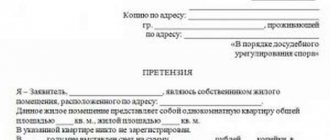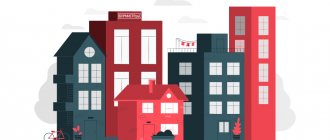Our correspondent from Omsk, Natalya Graf, asks: what should a person do if his payment bill shows an increase in tariffs since July 1 that exceeds the limit indexes? For example, in the village of Kutuzovka, Chebarkul district, heating payments increased by 9 percent.
Alexey Matyukhin: It is necessary to look at how much the overall payment for all utilities has increased. Because the restriction mechanism allows you to increase more than what is established for a particular type of resource, for example by 7 or even 10 percent. But the final total payment compared to what a citizen, for example, paid in December 2021, should not change more than what is allowed by the government. That is, if you combine heat, water, electricity, gas, you will get no more than what is provided for the Omsk region.
For clarification, it is better to contact the State Housing Supervision authorities. How correctly payments are calculated can be found out at the FAS. We will check compliance with the limit index for the constituent entity of the Russian Federation. You can try to double-check the accuracy of the calculation using the “utility payment calculator” on the FAS website.
How correctly payments for utility services are calculated can be checked using the “utility payment calculator” on the FAS website
Some regions announced that due to the pandemic they did not raise individual tariffs. When can they be raised now?
Alexey Matyukhin: Tariffs according to the law change from July 1. There can be no other date. But the region may decide to establish preferential tariffs for the population from July, which may be equal, for example, to the 2021 tariff. The tariff for companies has increased, but not for citizens. And this delta is compensated by the budget of the subject of the Federation. The region has the right to cancel this preferential treatment in a few months, and residents’ payments on receipts will increase. But the payment of citizens still should not change by a percentage greater than the government-approved index.
Svetlana Razvorotneva answers readers’ questions in the “Legal Consultation” section
Svetlana Razvorotneva: I’ll add that there are also fees for major repairs, which are set not by the federal government, but by the region. Last year, many subjects of the Federation decided to increase their income, and set the size of the “increase” themselves.
There have been proposals to freeze tariff growth for a year in Russia as a whole due to difficulties in the economy caused by the pandemic...
Alexey Matyukhin: Although the increase in fees for housing and communal services occurs on July 1, the decision on this is made in December 2019.
Infographics "RG" / Anton Perepletchikov / Olga Bukharova
Debt due to debts
Question from our correspondent from Bashkiria, Olga Goryunova: in the current conditions, will the issue of exempting large families or those without work from paying for housing and communal services or increasing the amount of subsidies be considered?
Svetlana Razvorotneva: In my opinion, releasing, reducing or freezing utility bills will not help matters. Firstly, this support is not targeted. Secondly, an artificial reduction in payments leads to the fact that enterprises do not have enough funds to provide high-quality services, carry out routine repairs, and prepare for winter. That is, as a result, the same consumers suffer.
The best tool for assistance is not benefits, but housing subsidies. Because they provide this assistance depending not on categories, but on need. For example, you can be a mother of many children, but at the same time have a very well-earning husband... Unfortunately, now not all citizens eligible for this benefit from subsidies. First of all, because of the very complex registration procedure. For example, in Udmurtia, some categories of citizens applying for a subsidy need to draw up and bring 32 documents to the MFC or social security.
Another problem is that the subsidy is provided only to those who have no debts for housing and communal services or have entered into an agreement on debt restructuring. It turns out to be a vicious circle. During the pandemic, attempts were made to break this system in a number of regions. For example, Moscow and Volgograd began to issue subsidies in the presence of debts. But the procedure for obtaining new subsidies remained complex.
90% of overage proposals rejected
To what extent are tariffs for the population economically justified? It is often said that we pay less than cost.
Svetlana Razvorotneva: Tariffs are different everywhere. Somewhere they are actually lower than justified, for example in Kamchatka, in the Far East. There, the population pays less, and the lost income is subsidized by regional authorities. Somewhere this happens in disguise. Our tariffs are lower than in many Western European countries, but we actually pay more. Because theft, heat loss, ineffective modernization, worn-out utility infrastructure...
There are those who, I think, live well thanks to tariffs. Now, thank God, we have put an end to the practice of companies that were given a meter of pipe as a resource supplying organization. There is a separate tariff for this pipe, and the participation of an intermediary doubles the cost of services. There were similar stories in the Far East, in the Leningrad region.
Alexey Matyukhin: Setting tariffs is the competence of a constituent entity of the Russian Federation. But I would like to point out that there is not only the desire of the region or a specific company. There is a basis for pricing, methodological recommendations that must be strictly followed.
In 2021, a mechanism was introduced for approval of excesses of indices established by the government with the Federal Antimonopoly Service. In previous years, about two thousand municipalities at the local level agreed on excesses by several times, in some cases, tens of times more than the government gave to the region.
In past years, about two thousand municipalities raised tariffs several times higher than the maximum indices established by the government
We received a flood of requests from the regions, we looked at the documents and 92% of them were returned. That is, the excesses that were planned for this year from July 1 were reduced by 90 percent. They brought us documents: “We are planning, perhaps, in January to establish such and such a standard...”. Or letters from the heads of large cities: perhaps we are planning to conclude a concession agreement in July or August 2021, agree for us to increase tariffs by 35 percent. This is at least not serious.
We would like to point out that we do not agree on the percentage increase. But only the possibility and availability of documents that this can be increased. And what percentage is calculated by the regions. There was not a single refusal from the FAS for the reason that they wanted to increase tariffs too much.
Food
A Moscow resident spends about 2.8 thousand rubles a week on buying groceries. With this amount you can buy: chicken, eggs, butter, pasta, tea, sugar, apples, onions, potatoes and tomatoes. Expenses increase if you purchase alcohol and meat products.
A meal at fast food for two people costs 700 rubles, at a chain restaurant – 1.5 thousand rubles. Monthly spending on groceries reaches 15 thousand rubles.
Health
Residents of Moscow are getting sick, just like people in other regions of the country. Medicines in pharmacies are quite expensive. A regular cold powder will cost 115 rubles, a citramon tape will cost 6 rubles. If you treat a cold, you can spend up to 2 thousand rubles in one trip to the pharmacy.
Meters are not a panacea
After last winter, there were many questions - why, even in extremely warm weather, should residents pay for heating according to standards designed for cold winters? Can residents demand changes to standards, citing the fact that the climate has become warmer?
Alexey Matyukhin: Standards are the full competence of the government authority of a constituent entity of the Russian Federation. The FAS or other federal body cannot prescribe anything. There is a government decree establishing standards. If I’m not mistaken, the standards are revised at least once every three years, or if there are any targeted changes in the company or in other matters.
Svetlana Razvorotneva: Changing standards does not always lead to the results that the population hopes for. The topic of changing heating standards was actively discussed throughout the past year. The Ministry of Construction adopted the calculation methodology. It turned out that old, dilapidated, low-rise buildings, which actually consume a lot of heat, should receive a very high standard. The adoption of such standards had to be postponed until January 2022.
The standard is always the same, no matter what the weather is like outside. He is always unfair. Metering devices are also not a panacea. Because often, for political reasons, we set standards lower than actual consumption. And when people install a meter and see that they are consuming more, this device instantly “fails.”
However, the device must be installed. And most importantly, you need equipment that will regulate the flow of heat into the house. We had many requests at the beginning of the year related to recalculations for heat. People rightly talk about a warm winter. But the management company is not working! There is a temperature graph - how much heat should be supplied if the air temperature is within such and such limits. If the management company does not monitor this and does not file complaints in a timely manner, then the suppliers “wash their hands”: “This amount of heat was due to the need to ensure standard consumption in a particular apartment.” If a person who has overheating does not draw up reports stating that his temperature in the apartment is above 24 degrees, then it is impossible to prove anything.
If payments are artificially reduced, enterprises will not have funds for repairs and preparation for winter. Photo: Alexander Korolkov
Rating of Moscow districts by standard of living
For those who decided to change their place of residence and chose the capital as a new city, it will be important to study the ranking of living standards by Moscow district.
TOP looks like this:
- Central - has a highly developed infrastructure.
- Northern - considered the most prestigious in the capital.
- North-Eastern - belongs to the category of the most comfortable.
- Eastern - wonderful ecology.
- South-East – ecology and infrastructure.
- South – accessible transport and historical area.
- South-West - chosen by politicians.
- Western – there are a large number of historical places and monuments.
- North-West is considered a promising district of the capital.
Moscow residents do not recommend choosing Kapotnya, Golyanovo, Molzhanovsky district, Nekrasovka, Western Biryulyovo and Pechatniki for placement.
Map of Moscow districts
Common features for these areas are: high crime, atmospheric and environmental pollution, and insufficient development of transport infrastructure.
More information about the ecology of Moscow districts can be found by following this link.
The high standard of living in Moscow in a particular area affects the cost of renting and purchasing an apartment. Prices for the districts of the capital are given below (in rubles per 1 m2):
- Central – 350 thousand on the secondary market. Construction of business and premium class housing is ongoing all the time. Entrepreneurs, top managers, businessmen, employees of international companies and the oil sector are settling in.
- South-West - 210 thousand in “Khrushchev” and “Brezhnevka” buildings. Construction of elite class housing is underway.
- Western district - from 150 thousand to 300 thousand. There are elite “bedrooms” here, many new business-class buildings, the secondary market is diverse and is represented by monolithic, panel and brick houses.
- North-West - 170 thousand per square meter on the secondary housing market, but in new buildings you will have to pay from 7 million rubles for comfort-class apartments.
- Northern - in new houses you have to pay from 140 thousand for 1 m2, and for 1 m2 in the secondary housing market - from 160 rubles.
- North-East - new houses are rarely built, so here 1 m2 varies from 155 thousand to 190 thousand rubles. On the secondary market prices are approximately the same.
- Vostochny - 148 thousand on the secondary market, new buildings are rarely built and make up 5% of the total number of houses that are being built. For 1 m2 in business class apartments they ask from 160 thousand rubles.
- Southern - there is a wide range in prices per 1 m2 on the primary market - from 105 thousand to 250 thousand rubles. You can buy apartments in panel houses for 140 thousand.
- South-East - an apartment in a panel house can be bought for 135 thousand per 1 m2, in new buildings the cost is even lower - from 90 thousand to 135 thousand rubles / m2.
- Zelenogradsky - located outside the Moscow Ring Road. Resale housing is sold for 95 thousand rubles/m2, and new housing – from 110 thousand rubles. per square.
Before buying an apartment, you need to study the features of the transport system, ecology, banking sector, take into account the availability of entertainment places, the development and accessibility of social facilities, and clarify whether there are green areas.
Garbage payments
There are many questions from readers about recalculations. Residents of the Moscow region regularly pay for housing and communal services, there are no debts - and suddenly next month they receive a recalculation of three thousand rubles for garbage. In Kaliningrad, the water utility sent a recalculation for two years. Can organizations present invoices for such quite significant amounts retroactively?
Svetlana Razvorotneva: Recalculations for water may be due to the fact that people do not submit meter readings on time. If this is not due to late transmission of evidence, then it is difficult for me to imagine what a legal basis for recalculation could be. Garbage is a difficult story. Service providers who have never worked in this market have entered the market. Perhaps the recalculation is due to data clarification. If in doubt, you should contact the State Housing Inspectorate.
Question from Samara: how would it be fairer to set tariffs for garbage removal based on square footage or the number of residents?
Svetlana Razvorotneva: It’s not for me to resolve this dispute. We also receive a huge number of letters from citizens with the wording that it is not meters that litter, but people. Most likely, the main reason for this approach is the ease of payment administration. It is extremely difficult to calculate the number of actual residents: one person is registered, but 10 live.
But what outrages people most is the inability to recalculate the fee if the service is not provided. If a person goes to the country for the summer, he will still receive payments for the removal of solid waste. Both we, social activists, and State Duma deputies have repeatedly raised the issue of the need to introduce a recalculation procedure. However, this has not yet been done.
Disinfection or repair
The pandemic has raised new questions. Complaint from the city of Kirzhach, Vladimir region: the management company charged residents 21 thousand rubles for disinfecting the entrances. Is there a legal basis for charging these expenses to residents?
Svetlana Razvorotneva: There are no legal grounds, because if you follow the Housing Code, all decisions regarding the cost of housing services are made by citizens.
Disinfection costs are simply not included in the minimum list of services for maintaining common property. And when the regional authorities ordered this work to be carried out, in my opinion, they should have determined the source of funding. It would be logical if such expenses came from emergency funds that the regions have. The Ministry of Construction also called for this. In May, monitoring was carried out, and it turned out that in at least 40 regions, including the Vladimir region, there was no assistance to the Criminal Code from local authorities.
Management companies were forced to solve this problem on their own. And they solved it through ongoing repairs, through work to prepare for winter. Therefore, there are fears that we will meet the heating season even less prepared.
Svetlana Razvorotneva and Alexey Matyukhin: Tariffs are different everywhere and in some places they are actually lower than economically justified. But setting tariffs is the competence of the subjects. Photo: rg.ru
Rates
There is no need for gas
It was recently announced that gas tariffs will increase by three percent from August 1. Why not from July?
Svetlana Razvorotneva: We are talking about increasing prices for wholesale consumers, which does not always occur on July 1. This will not affect consumers in any way at this time. An increase in wholesale prices is included when setting the tariff. In the Moscow region, a decision was made to postpone the increase in gas tariffs, but this was a purely social decision of the region.
In Moscow, over the past couple of years, the electricity tariff for those with electric stoves has been growing more than for those with gas stoves. This is usually explained by the desire to equalize tariffs.
Svetlana Razvorotneva: These are regional solutions. They probably have some kind of logic. For me, setting tariffs in Moscow is always a mystery. Why do they always grow faster in Moscow than throughout the country? Although tariffs in Moscow have now been raised by 3.7 percent, they, based on some considerations, made an application for 5 percent.
Alexey Matyukhin: Maximum payments are set according to a methodology approved by the government. In fact, they are approved long-term, there is a certain formula. Indicators of socio-economic development and other points are included there. The increase figure is primarily related to the socio-economic situation of the region, development, active construction, implementation of comprehensive development programs and other points.
About money
Moscow has many opportunities, but everything in the capital costs money. And this price is several times higher than in neighboring regions, which is due to the special Moscow style, brands, and lifestyle. If in large and medium-sized cities of Russia a monthly income of 100–150 thousand rubles will be a fortune, then in Moscow this amount is enough to live on a minimum.
The ranking of Russian cities by standard of living can be found by following this link.
You still need to be able to earn that kind of money in the capital, since the official salary is much less than the amount needed for living. You need to earn a lot in order to pay rent or buy an apartment, pay utilities, get to work, buy groceries. Quite often there is simply not enough money for entertainment.
Minimum wage in Moscow
The standard of living of the population in the city depends on the minimum wage, which is set every year by the government, based on the economic situation in the country and income growth.
In 2021, according to the website of the Federal State Statistics Service, in Moscow the minimum wage was 18.781 thousand rubles, and in the Moscow region this figure was recorded at 14.2 thousand rubles. The Federal State Statistics Service allows you to get acquainted with how the minimum wage has changed in the capital in recent years. All data is shown in Table 1.
Screenshot of the website of the Federal State Statistics Service dated 11.25.19
Tab. 1. Minimum wage in Moscow for the period from 2013 to 2021.
| Year | Minimum wage in the first half of the year (in rubles) | Minimum wage (in rubles) in the second half of the year |
| January–June 2013 | 11.7 thousand | |
| July–December 2013 | 12.2 thousand | |
| January–May 2014 | 12.6 thousand | |
| June–December 2014 | 14 thousand | |
| January–March 2015 | 14.5 thousand | |
| April–May 2015 | 15 thousand | |
| June–October 2015 | 16.5 thousand | |
| November–December 2015 | 17.3 thousand | |
| January–September 2016 | 17.3 thousand | |
| October 2016–June 2017 | 17.651 thousand | |
| July–September 2017 | 17.642 thousand | |
| From November 2021 until today | 18.781 thousand |
Average salaries
Now the average monthly salary in the capital is 81–82 thousand rubles. According to official statistics, this amount is equal to 1.2 thousand US dollars. Residents of Moscow a year ago earned 81,840 thousand rubles per month. After all deductions, workers received a little more than 71 thousand rubles.
The average standard of living in Moscow depends on many factors, including the sector of employment, official and “shadow” earnings, region, profession, work experience and education. The ones who receive the most are: TOP manager, workers in the show industry, transport, medical, and pharmacological sectors. In show business you can earn from 70 thousand rubles. per month, managers and other specialists of these industries - from 60–65 thousand rubles.
Rating of industries by salary level in Moscow
The ranking of average earnings in Moscow in 2020-2021 is given below (rub./month):
- Real estate and marketing – from 60 thousand.
- Production – from 56 thousand.
- Trade – from 55 thousand.
- Household staff – from 55 thousand.
Representatives of the following specialties (in rubles) earn much higher earnings:
- Software developers – from 185 thousand.
- TOP manager – there is a lot of variation, sometimes the salary reaches 1 million.
- Head of department - 165 thousand.
- System architects – 155 thousand–180 thousand.
- Directors of companies - up to 150 thousand.
- Head of Sales Department – 130 thousand.
Rating of highly paid professions in Moscow
But such average salaries are recorded for a small number of the working population of Moscow. Most working citizens earn much less.
The data is given in table. 2.
| Sphere | Minimum wage | Maximum salary |
| Engineering | 70 thousand | 100 thousand |
| Technology | 70 thousand | 90 thousand |
| Programming | 60 thousand–80 thousand | 150 thousand |
| Right | 60 thousand | 80 thousand |
| State medicine | 34 thousand–60 thousand | 98 thousand |
| Private medicine | From 90 thousand | More than 100 thousand |
| Restaurant and hotel business | 42 thousand–56 thousand | 70 thousand |
| Household staff | 30 thousand | 46 thousand |
| Education | 55 thousand | 97 thousand |
| Preschool sphere | 25 thousand | 40 thousand |
| Accounting | 61 thousand | 94 thousand |
| Financial | 52 thousand | 67 thousand |
| Marketing | From 40 thousand | 75 thousand |
| Logistics | 36 thousand | 61 thousand |
| Electric power | 67 thousand | 86 thousand |
Number of vacancies in Moscow for 2 months
Tab. 3. Blue-collar jobs and service industries
| Profession | Salary (in rubles) |
| Stylist | About 50 thousand |
| Hairdresser | 44 thousand |
| Visagiste | 50 thousand |
| Auto Mechanic | 48 thousand |
| Sports instructor in the gym | 80 thousand |
| Electrician | From 35 thousand to 45 thousand. |
| Welder | 50 thousand–75 thousand |
| Courier | 21 thousand–43 thousand |
| Electrician | 55 thousand |
| Loader | 35 thousand |
| Florist | 26 thousand–35 thousand |
| Turner | 50 thousand–65 thousand |
| Realtor | Almost 70 thousand |
| Packer | 51 thousand |
| Builder | 55 thousand |
| Driver | 58 thousand |
| Street cleaner | 29 thousand |
| Designer | 54 thousand |
| Police officer | 25 thousand–36 thousand |










